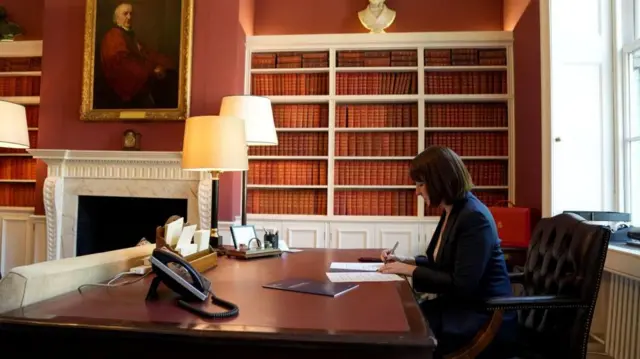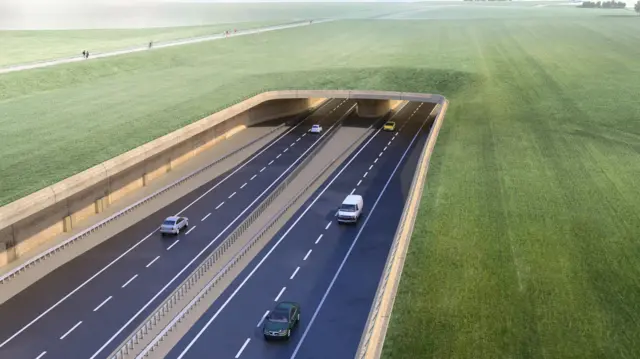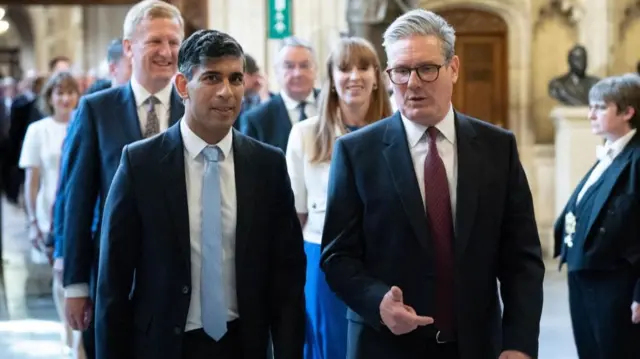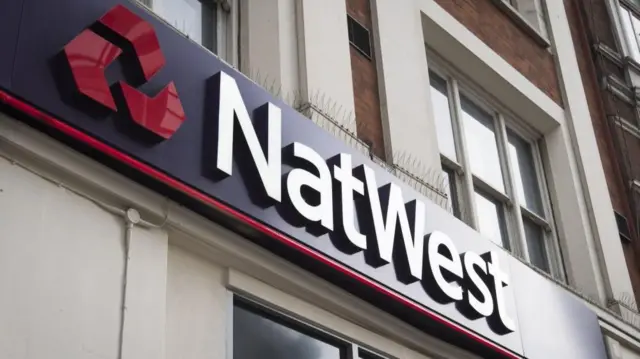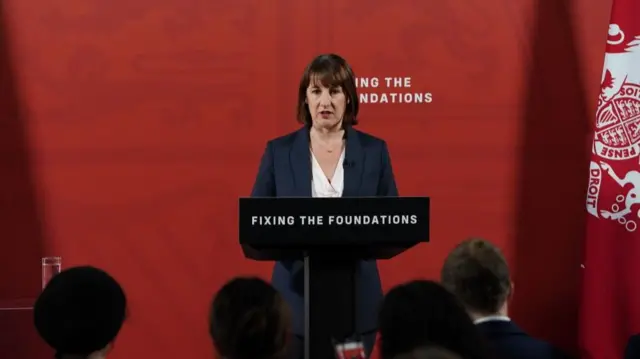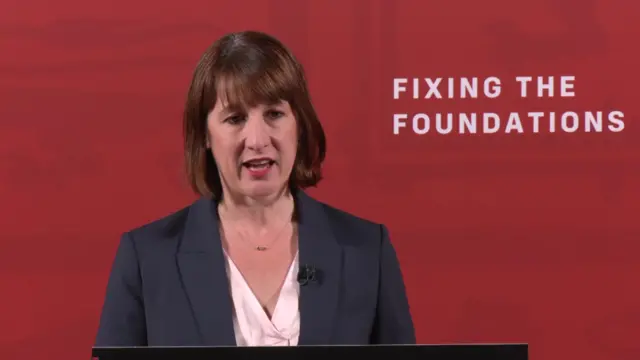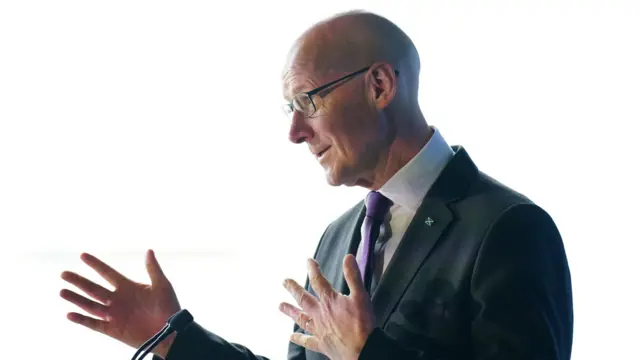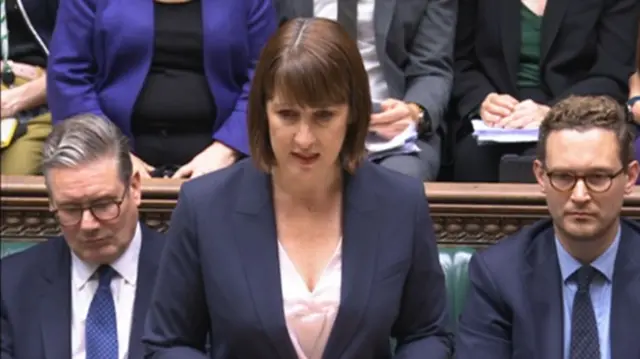How to read more about the Reeves announcementpublished at 19:27 BST 29 July 2024
 Sean Seddon
Sean Seddon
BBC News
Thank you for joining us today. If you want to read more about the chancellor's intervention, take a look at these links below.
- Rachel Reeves's spending audit at-a-glance
- Winter fuel payments scrapped for millions
- Chris Mason: Reeves dollops blame on Tories
- Junior doctors offered 22% pay rise to end strikes
This page was edited by Francesca Gillett, Barbara Tasch and myself. It was written by Lana Lam, Seher Asaf, Rachel Flynn, Jacqueline Howard, Cachella Smith, Dearbail Jordan and Thomas Copeland.
Have a good evening.

